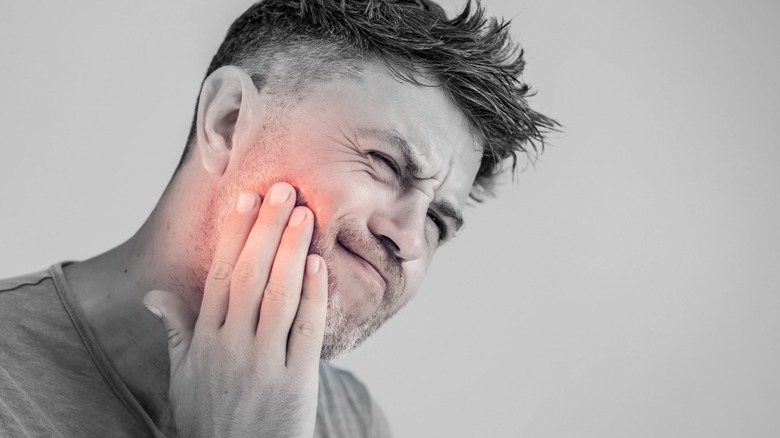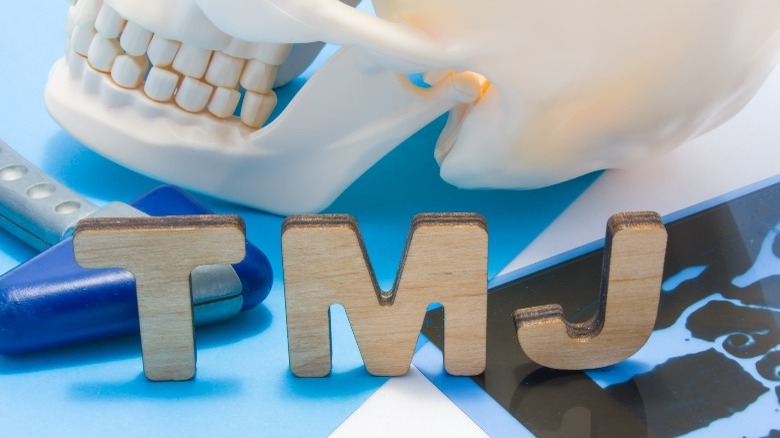Is It Possible To Get Arthritis In Your Jaw?
According to the Smithsonian Magazine, the lower human jaw has changed alongside the emergence of agricultural practices and the diet that came with it. For example, cooked foods may have weakened the strong jaws that hunter-gatherers used to chew rougher, unprepared food. The growing evidence that the human jaw has physiologically changed with the lifestyle changes associated with agriculture is being called the "jaws epidemic," reports Stanford University. The changes in the jaw — which can cause issues such as jaw pain or sleep apnea — are probably not genetic but related to certain lifestyle choices that range from eating softer foods to even poor jaw posture from sleeping on soft beds and pillows.
There are other ways to injure your jaw. MedlinePlus cites broken bones, dislocations, and even cancer as common ways to damage the jaw. But is it possible to get arthritis in your jaw? The answer may surprise you.
Temporomandibular joint (TMJ) disorders and arthritis
The human jaw is made up of an immobile upper and mobile lower bone (via MedlinePlus). The lower jaw bone, or mandible, shares the temporomandibular joint (TMJ) with the skull.
TMJ issues are a common disorder of the jaw that can cause pain and swelling (per Healthline). There are certain other telltale symptoms of a TMJ issue as well. If you have trouble chewing your food, or if it hurts to chew, it may be a sign of a TMJ problem, says Mayo Clinic. Lockjaw or a clicking sound when moving your jaw are other common symptoms. But pain in or near the ear or a general ache in your face can be signs of a TMJ disorder too.
A TMJ disorder may be caused by different types of arthritis. According to the Merck Manual, the TMJ can get a painful infectious form of arthritis that causes inflammation. You can even develop arthritis in the TMJ from direct trauma, like from an extreme extraction of a tooth, though that is not common. Healthline also lists osteoarthritis, rheumatoid arthritis, and psoriatic arthritis as other kinds of arthritis that can affect the jaw.


